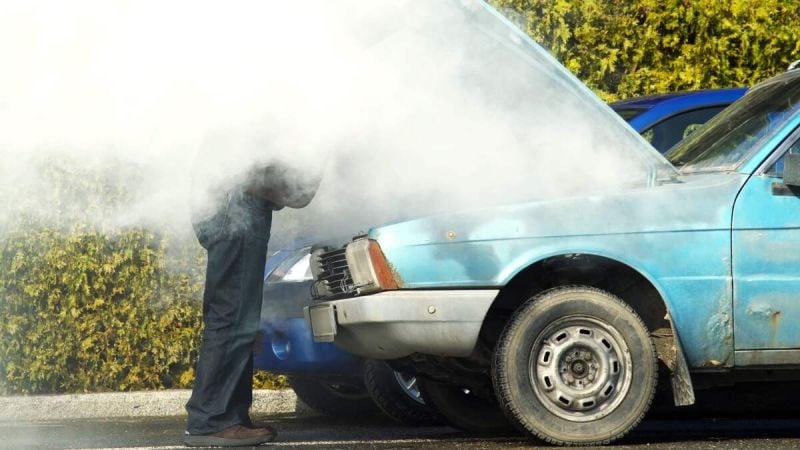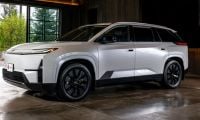The most expensive car repairs tend to involve significant parts of a vehicle's engine, transmission, or electrical system. To provide you with some idea of just how expensive repairs of these types can be, here is a list of some of the top 10 most costly repairs you can expect in many models today:
1. Engine Overhaul or Replacement: Cost: $3,000 to $7,000+
2. Transmission Repair or Replacement: Cost: $1,800 to $5,000+
3. Hybrid or Electric Battery Replacement: Cost: $2,000 to $8,000+
4. Turbocharger Replacement: Cost: $2,000 to $6,000+
5. Cylinder Head Gasket Replacement: Cost: $1,500 to $3,000+
6. Suspension System Repairs (Air Suspension): Cost: $1,000 to $4,000+
7. Timing Belt or Chain Replacement: Cost: $500 to $2,000+
8. Fuel Injector Replacement: Cost: $1,000 to $2,500+
9. Catalytic Converter Replacement: Cost: $900 to $2,500+
10. Air Conditioning Compressor Replacement: Cost: $1,200 to $2,000+
While ensuring that your car is properly maintained will go a long way toward avoiding many high-ticket item repairs, the fact of the matter is that some models are more prone to have problems than other models, regardless of the make. Even Toyota has its occasional model problems, as we've learned lately.
Avoiding the Reliably Unreliable
To help you avoid the most unreliable cars and SUVs you should never buy used and even for 2025, a recent episode of the Car Help Corner YouTube channel has focused on the predicted problem models you can expect; based on engine and transmission generations that have a proven history of unreliability and may carry over onto next year's models.
"I'm going to share the most unreliable vehicles that you can buy that have the highest failure rates for their engines and transmissions. So, if you want to avoid spending several thousand to even tens of thousands in repairs for a vehicle that might just be a total pile of junk, these are the vehicles, whether you're buying new or used, that you should avoid," warns the host.
That said, follow along with the host in the video posted below, or save some time by skipping down to the summary of those models and their problems you will want to avoid.
Most Unreliable Cars With Bad Engines & Transmissions That Fail
Unreliable Car with Bad Engines and Transmissions Summary
Nissan: Models (especially the Altima) ranging from 2003 to 2018 with the notorious CVT (Continuously Variable Transmission) in which problems have proven to be problematic. It is a transmission designed with a less reliable pulley system connected via a steel band, rather than using the more dependable hydraulic-based system to engage the gears in older model cars and trucks. The kicker on CVTs is that they cannot be repaired but rather are replaced at a cost between $7,000 and $8,000.
Related article: Toyota Transmission Truths You Need to Know
Honda or Kia: Any model (especially the Seltos and the Soul) with a recalled 1.6L, 2.0L, and 2.4L 4-cylinder engine from 2010 to 2021; millions of which were recalled due to being prone to internal engine problems and were a fire risk. No other brands have had as many vehicles recalled.
Volkswagen: Any turbo model with the 1.5L TFSI (EA211) engine, especially the 1.5L variants used in the Jetta and Taos models. Both possess a wide range of engine and electrical problems that are prohibitively expensive to have repaired.
Ram 1500: "Lifter failure, which is caused by poor oil flow, can lead to camshaft damage and engine failure. They are also known for having problems with cracking or warping exhaust manifolds and broken manifold bolts, which is another serious and expensive issue," warns the host. Expect poor customer service when needing repairs and the tendency of Stellantis to refuse warranty claims. The 2025 models will not have the Hemi engine but now have an overly complex, unproven engine replacement that is likely to do poorly in its first year or so as bugs will need to be worked out.
Ford: Any models with the "EcoBoost" engine, which comes in 3, 4, and 6-cylinder turbocharged varieties―especially the Escape and Bronco models. The 3-cylinder engines have the lion's share of problems, while the 6-cylinder (in the F-150 trucks) is less so, and the 4-cylinder is somewhere in between.
GM: The Ecotech V8 engines are the problem child of GM after their adoption of the cylinder deactivation technology in the 5.3L and 6.2L V8s.Valve lifter problem class action lawsuits are their history that continues today.
GM and Ford Shared Transmission: Any models of GM or Ford that share the 10R80 10-speed automatic transmission from 2017 and onward that they developed for their full-sized trucks. A range of rough transmission running problems up to the point of total transmission failure has been the bugaboo for both popular truck manufacturers.
European Models: Any brand of luxury European vehicle (Audi, BMW, Volvo, Land Rover, and Mercedes) that has passed its warranty period. Expect regular repairs as they age quickly after their first 4-5 years. A new engine will cost up to $20,000-$30,000 for a replacement. "It's sad to say, but these really do seem to be disposable vehicles that are just not made to last, and they are certainly not made for the average consumer to own post-warranty. That's why I only recommend leasing them for 3 to 4 years under warranty and just returning them; Anything beyond that is not worth the trouble," states the host.
For additional articles related to cars to avoid, here are a few useful ones for your consideration:
- Most Unreliable Cars To Own Over 5-10 Years
- Least Reliable Cars That Don't Make It Past Their Warranty
- Toyota Turbo Assessment by Toyota Expert Explains This Potential Engine Killer
Timothy Boyer is an automotive reporter based in Cincinnati. Experienced with early car restorations, he regularly restores older vehicles with engine modifications for improved performance. Follow Tim on Twitter at @TimBoyerWrites for daily news and topics related to new and used cars and trucks.
COMING UP NEXT: Nissan Frontier Warning for Used Truck Shoppers
Image source: Deposit Photos
Set as google preferred source












Comments
Did you mean “Hyundai or Kia…
Permalink
Did you mean “Hyundai or Kia?” Or is it really Honda?
You guys meant Hyundai and…
Permalink
In reply to Did you mean “Hyundai or Kia… by Jeremy (not verified)
You guys meant Hyundai and not Honda. Honda doesn't have engine problems really and the only ones they will/might make a recall for is the 2017 ones and newer. Make sure you get the spelling and information right.
I think the author meant to…
Permalink
I think the author meant to say Hyundai and Kia, not Honda and Kia. Proofreading is a good idea most days